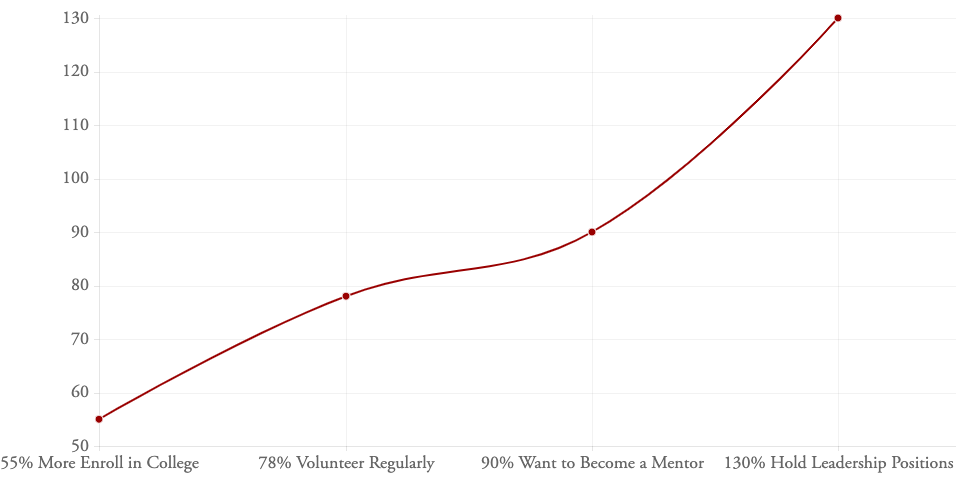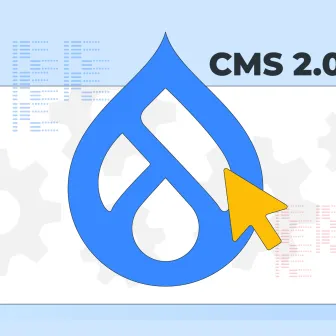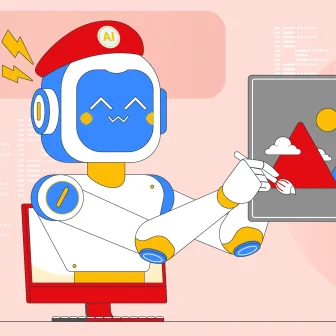To learn is to grow, this is probably the truest statement I have ever come across. Since learning is equivalent to the acquisition of knowledge, an upward learning curve enables us to open new doors of opportunities and grow with them.
When we think about learning and actually doing it, almost always there is one person we find ourselves relying the most on. This is the person that guides us throughout the learning process. It could be our teacher, our friend, colleague or even a sibling. And if we had to give this person a name, the most suitable would be that of mentor.
A mentor helps us transition into a more skilled version of ourselves and in every field skills are integral. Coming to Drupal, with its myth of being extremely difficult, acquiring new skills becomes all the more important.
This compels me to thank the Drupal community, which thrives on its mentors and continues to grow each passing day. And that’s what this blog is going to be about. We will discuss each aspect of Drupal Mentoring and how you can contribute to it. However, before getting into that, let’s accentuate mentoring in general.
The Power of Mentoring: In Numbers
If we go into definitions, a mentor would be described as someone with more experience and knowledge, who teaches, nurtures and helps in the development of someone with less knowledge and experience. The ultimate goal often is to influence the personal and professional growth of the mentee.
In an organisational setting, mentoring has immense potential. From improving employee career outcomes to retaining them and keeping them engaged, mentoring can accomplish a lot.
The Mentor Coach Foundation’s findings would make you believe in the power of mentoring even more.
- 71% Fortune 500 companies have a mentoring program;
- 97% consider the programs valuable;
- 89% existing mentors plan to go on mentoring others;
- 79% millennials believe mentoring is crucial to their career success;
- 25% of employees who has mentors saw a positive change in their grade pay;
- 24% improvement was seen in the representation of minorities through mentoring programs;
And it’s not just organisations who gain from mentoring, the youth in general do as well. The below line chart talks about the youth in America and how they fare with a mentor guiding them.

More on the merits of building a culture of mentorship here.
Mentoring is imperative, now we have proof of the same. This brings me to Drupal Mentors and discussing their importance in the community and for the community.
Who are Drupal Mentors?
“Drupal Mentoring and mentors inspire, enable, and encourage new contributors. They also work on the core tools, process, and community to make it easier for new contributors to get involved.”
The above quote from Drupal.org pretty much sums up the essence of Drupal Mentoring or Drupal Mentors, if you may. These are Drupal developers, who have taken the flagship of maintaining and expanding Drupal.
Drupal Mentors come from varying backgrounds, some are technical experts, while some are non-coders. What unites them is their willingness to indulge in mentoring at organised Drupal events and collaboratively working with one another on the Drupal project.
From resolving Drupal issues queues, be it related to smaller changes in the contributed modules or the rigorous Drupal core, to making improvements in the platform, Drupal Mentors achieve loads.
Do the mentors need support too?
Yes, they do. The Drupal Mentoring team, a working group, supports mentors on an everyday basis. They manage mentoring in the community with the help of Drupal Association and go as far as organising follow-up activities along with pushing people to become mentors.
From my vantage point, Drupal Mentors are the backbone of the CMS, without them Drupal would lose all its amazingness and wither away.
Why, you might ask.
The answer is plain in front of us. Since the mentors have the responsibility to encourage and bring in new contributors, if they do not do that, maintaining the open source CMS would become a daunting task that a handful of existing contributors would never be able to accomplish.
So,
- If mentors do not regularly inspire aspiring contributors;
- If mentors do not engage in dedicated contribution events;
- If mentors do not answer questions from budding contributors in text chat channels;
Drupal could get in trouble and there won’t be a way to learn new skills and scale the contributions of young Drupalists.
Here is a video that would enlighten you a bit more about Drupal Mentoring.
What Does Drupal Mentoring Entail?
If you ask me whether the job of a mentor and that of a teacher are the same, I would have to say yes, to a great extent, but not all the way.
The prime job of a mentor is to instil confidence in the people who are seeking help, the novices to be more precise. A mentor would be providing a direction to him or her by working hand in hand. For the same, being competent at instruction, guidance, leadership and assessment is essential, which is a lot similar to teaching.
However, Drupal Mentoring entails a lot more.
- Being a role model to the youth;
- Being a contributor to the Drupal project;
- And being a dedicated employee in your workplace.
Of course, Drupal mentoring goes beyond these three in terms of the roles and tasks assigned to the mentors.
- Discover Drupal Mentor
- Drupal Core Committer
- Drupal Core Initiative Coordinator
- Drupal Meetup Organiser
- Major Issue Triage Lead
- Community Tools Lead for Mentoring
These are merely a few roles out of a long list of duties and tasks that Drupal mentors have to undertake to fulfil their contributions. Discover Drupal Mentor takes on the responsibility of sharing his or her experience and expertise with an underrepresented student in the Discover Drupal Program, while the Drupal Core Committer would perform the final review and commit on community-suggested improvements to Drupal core.
Providing feedback to novice contributors along with mentoring leads and coordinators is another significant part of the duties of the Drupal Mentoring team.
Do You Need to be an Expert to be a Mentor?
The words mentor and expert are independent of each other. Not all experts are mentors, likewise not all mentors can be experts and it is perfectly acceptable for a Drupal mentor to not be an expert or know-it-all.
If I had to describe a good mentor, I would say that,
- It’s someone who is excellent at sharing what he knows;
- It’s someone who isn’t hesitant in letting his mentees know how he acquired the knowledge;
- It’s also someone who is open and frank about the things he doesn’t know and is willing to learn.
Nowhere, from these three attributes do you get the hint of a mentor being an expert. So, if you do not know everything, it’s perfectly fine and you can still be a mentor.
This is why there are three categories of mentors.
Learning Mentor
Demonstrating some degree of knowledge about your area is the essence of a Learning Mentor. This incorporates a certain understanding of an issue or task and being able to explain the same. It’s important because you would have to show novices where to start a task and ask them to complete it. Having a basic knowledge such things would enable you to assist them if and when they get stuck.
Skilled Mentor
Where the job of Learning Mentor ends, that of a Skilled Mentor starts. As a skilled mentor, you would have to ask novices to complete a task, identify and aid them with blockers and guide them towards the next steps. Demonstration is key too for skilled mentors, you have to show your mentee the how, relating their current situation to yours in the past and the way you overcame it is also needed. You have to act as a role model and you can only do that by setting an example and showing them that they can take your place one day.
Expert Mentor
The Expert Mentor does all of the things that Learning and Skilled Mentors do, however, they perform some additional tasks as well. Since they are experts, they not only have to be role models for novices, but also for mentors. They provide peer reviews to mentors, recruit novices and experienced contributors as mentors and celebrate the wins of mentors and contributors.
So, yeah, you do not need to be an expert to become a mentor, but if you are that’s always welcome too.
What are the Expectations from a Mentor?
Being a Drupal Mentor in the Drupal Community is a humongous responsibility and you have to be able to fulfil it to the best of your ability. This would require you to maintain certain standards as a mentor, which would make you an ideal fit in the community.
Here are some suggestions that could help.
Focusing on the Outcome
Contribution participation is what makes the job of Drupal mentors fulfilling and not how much you accomplished in a day and certainly not the number patches you fixed. The goal is to make new contributors have fun and be inclined to contribute again at home or on another contribution day. You have to remember what the end goal is.
Feeling the pressure of failure isn’t going to help with achieving the same. Contributions are a process, a long one, so you won’t see the results overnight. That’s why you need to focus on the outcome, that’s the bigger picture.
Getting Acquainted
Mentoring is all about interactions, you have to connect with your mentees or mentors, welcome them and get to know them. It doesn’t have to be in person always, if 2020 has taught us one thing, it’s that relationships can work smoothly online.
- Drupal groups like Mentoring are a great way for mentors to post and chat anything they like.
- Events are another way, putting your make and drupal.org and chat usernames on your name tag makes you more identifiable.
Setting Expectations by Building Relationships
Setting goals and expectations is an important part of mentoring and without a healthy relationship between you and your mentee that would be highly unlikely.
Focusing on building a relationship with each other goes a long way in mentoring. By sharing tidbits about yourself with one another helps your personality come out in the open. You need to ask new contributors questions about their motives. Something like knowing what they want to contribute with, a skill they already have or they want to learn something new.
The agenda of mentoring becomes streamlined by knowing the mentees as you would be able to match their skillset and intentions to appropriate tasks.
Checking-in Regularly
Regular check-ins are important for both your and the mentee's growth. Let’s understand how. For instance, you have given your mentee a task to accomplish and it’s been a couple of days since you checked-in with him. He could be struggling to understand the task, finding it a tad too complicated, now you wouldn’t know that because you didn’t check-in earlier.
To avoid such scenarios, we prefer open-ended questions that give enough room to the novice contributor to tell you what is happening. ‘How are things going?’ is one such question. I remember the last time my mentor asked me that, I all but gushed out every problem I had.
Saying that, you have to give a chance to your learners to figure things out by themselves. At the end of the day that’s what we want, right?
Reviewing Contributions
Being a good mentor comes with a lot of accountability. You are responsible for your contributor’s contributions, so reviewing them is key here, especially when they are just beginning and it’s their first contribution.
- Ensuring that all the steps have been followed and competed;
- Ensuring the comment added is constructive;
- Ensuring the code adheres to the coding standards, usability standards, accessibility and documentation standards.
You have to look for differences that are visible to how you would have done things. After finding them, you have to rectify them and your review will be done.
Talking Publicly
Mentoring conversations need to be public at all times. This is because it’s not just your mentor who will benefit from your interaction, but others who overhear your conversation may also learn from it.
So, private chats are a big no. Much like the platform we are working for, the conversations need to be open source too.
This is also important because you might not always know the answer and with a public chat, someone who knows the answer can chip in.
What’s the How, Where and When of Mentoring?
We’ve discussed pretty much everything about Drupal Mentoring, so what more is there for me to talk about. The ‘how,’ that’s what. Knowing how the process works is as important as knowing it’s benefits. The working model of Drupal Mentoring includes certain facets that highlight the how, where and when.
Here is the gist of it.
Discover Drupal Program
There are so many people who are underrepresented in the open source community. These people need mentors to guide them and commit to their journey. Therefore, the Discover Drupal Program enables them to unlock opportunities in Drupal with the help of a mentor over several months.
Impromptu Mentoring
Also known as ad-hoc mentoring, this is a pretty common way of mentoring that’s instant and subsequently happens over instant messaging tools like Slack or DrupalChat.me. Signing up is all you need to do.
Scheduled Mentoring on Drupal Channels
If you are not a fan of the impromptu sessions, there are also organised slack meetings that take place on every 2nd Wednesday of every month at exactly 8PM UTC. This happens over the #mentoring channel. And when DrupalCon is around the corner, it becomes more frequent taking place on the 4th Wednesday as well .
@drupalmentoring on Twitter
Following @drupalmentoring on Twitter is always an option to be aware of the office hour times and other mentoring events.
Drupal Groups
The Mentoring Group on groups.drupal.org helps you stay connected with other mentors. The blog section on Mentoring Group in the Community Section is helpful too. Knowing about the calendar of mentoring-related events can come handy as well.
Do You Wish to be Involved?
Becoming involved in the Drupal project by helping it grow and being maintained to the utmost standard is a great feeling to have. Encouraging new contributors to take the flag from you to the next level is even more fulfilling.
So, if you are looking to gain that fulfilment, let me tell you how.
Being an experienced contributor, but new to mentor, what you can do is;
- Start volunteering to mentor at upcoming Drupal events. Drupal events always come with contribution days, where coordinated mentoring happens.
- Join the channel on Slack, participate in meetings and engage.
- Meet up the right people at every DrupalCon; you’ll find them at the Contribution Mentoring Booth, that’s where all the Contribution days are planned.
- Participate in Birds of a Feather (BoF) sessions.
The Contribution Mentor Summit 2021 was one such innovative event that solely focused on increasing the number of contribution mentors. The aim was to help novice contributors take the first step towards aiding the Drupal project with their contributions.
- Finding unique and intriguing issues to tackle;
- Contributing with testing, code, documentation, design and UX;
- And learning the way to pass on the knowledge to new contributors.
The event had it all.
So, if you are looking to contribute to the Drupal project or becoming involved in mentoring and guiding new Drupalists, the opportunity is waiting for you, all you have to do is connect.
Subscribe
Related Blogs
Drupal's Role as an MCP Server: A Practical Guide for Developers

"The MCP provides a universal open standard that allows AI models to access real-world data sources securely without custom…
What’s New in Drupal CMS 2.0: A Complete Overview

"Drupal CMS 2.0 marks a significant change in the construction of Drupal websites, integrating visual site building, AI…
Drupal AI Ecosystem Part 6: ECA Module & Its Integration with AI

Modern Drupal sites demand automation, consistency, and predictable workflows. With Drupal’s ECA module, these capabilities…




